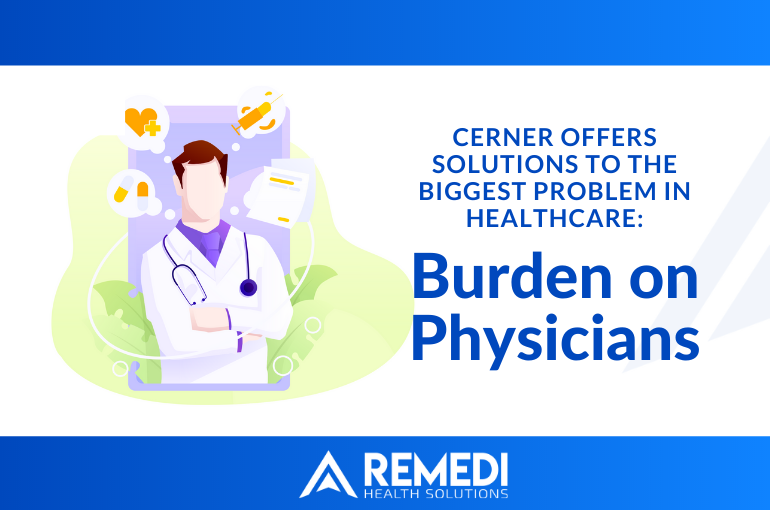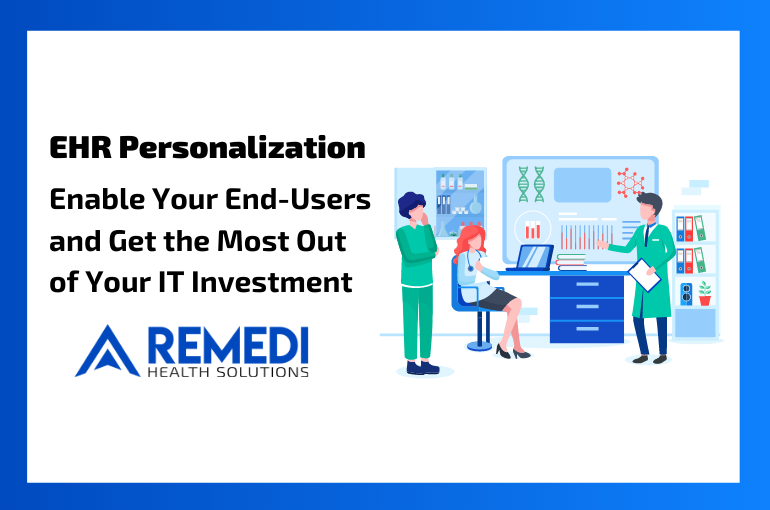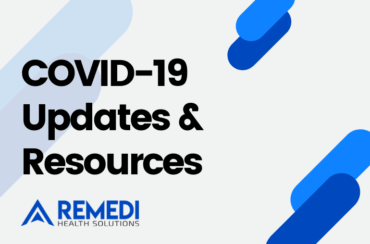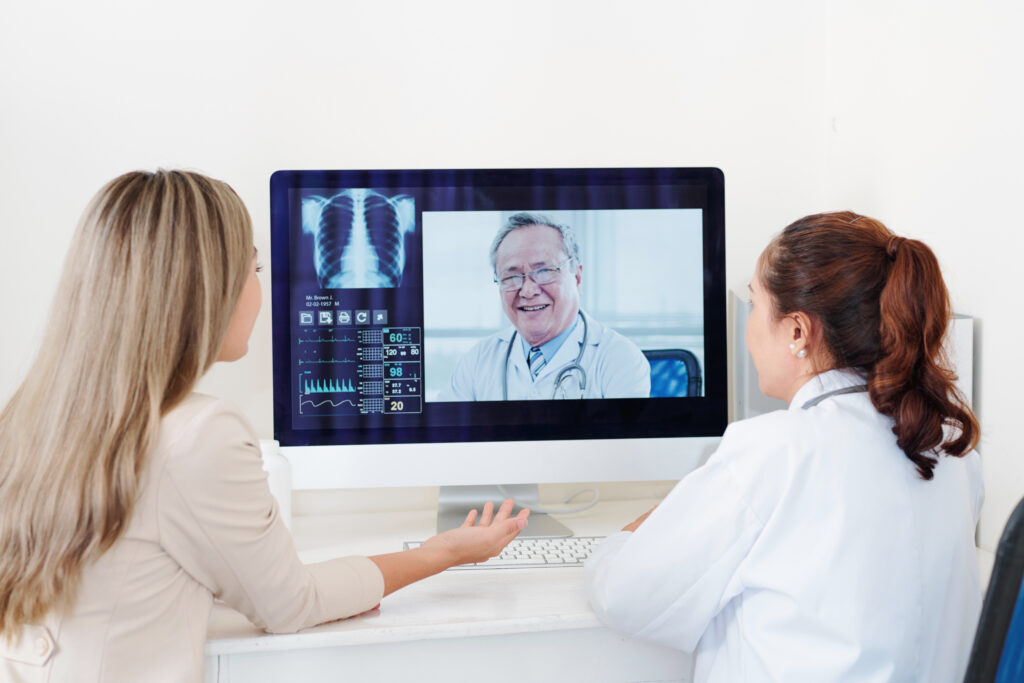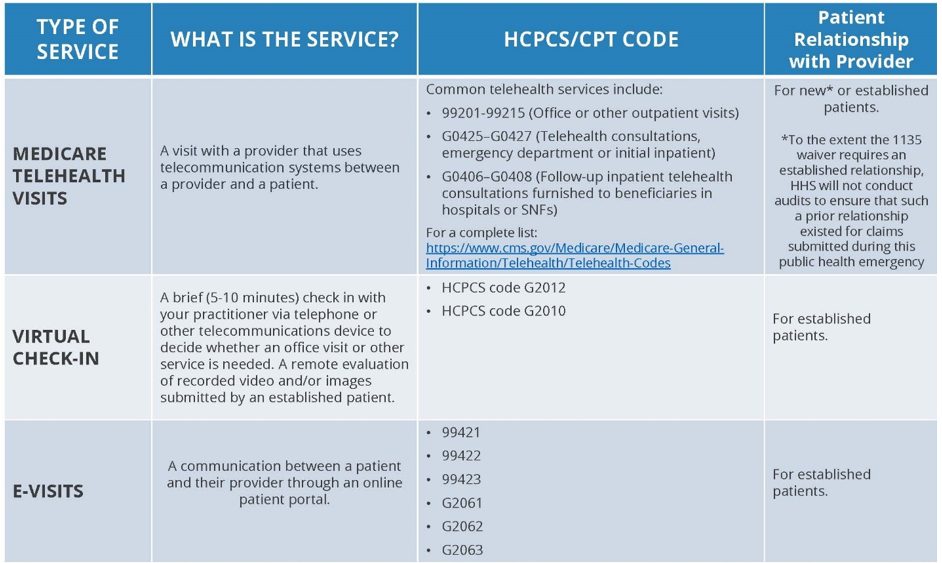Alleviate Physician Burnout with Oracle Health and Cerner EHR Solutions: Streamline Healthcare Operations
The sheer amount of responsibilities and information the average physician has to deal with on a daily basis all too commonly leads to burnout. In an interview with EHRIntelligence.com, Esther Hsiang, MD calls this out:
“Providers, especially primary care providers in the outpatient primary care setting, are expected to do so many different things in terms of addressing patient problems and remembering health maintenance screening, including cancer screenings and often [in] increasingly shorter and shorter visits.”
EHR software, like Oracle Health, or Cerner, is a natural step toward relieving some of the burnout physicians experience. Cerner offers solutions to the most common problems physicians deal with:
- Automated billing, revenue cycle tracking, and analytics
- Customized modules and forms for most specialties
- Easily accessible patient charts even from other healthcare institutions: Cerner Powerchart
- Integrated systems allowing a ‘big picture’ view of patients’ information
- Simplification of paperwork and documentation
Hospitals and clinics need a robust but user-friendly EHR system to remain competitive in this digital age. According to a 2019 survey, only 53% of primary care providers in the US can exchange patient information with other specialty providers. While some poorly implemented EHRs can actually add to clinician burden, the demand for software innovations drives Cerner and other EHRs to improve their systems. The Department of Defense and Veterans Affairs were originally on Vista, but needed to upgrade their software. Cerner presented a solid pitch and won the massive implementation deal.
ReMedi and Cerner Keep Physicians Focused on Patients, Not Paperwork
ReMedi is a physician-owned and driven IT Solutions company that helps healthcare institutions implement EHRs. As Physicians, ReMedi understands just how EHRs offer limitless value to healthcare institutions through personalized and efficient software solutions including:
- Reduction in errors through automated processes and checking
- Speeding up processes with pre-built, customized forms and orders
- Immediate access to test results or specialist observations
All these quality-of-life improvements help physicians with their workflow, but they also help patients have a better experience. Automated nudges, predictive analytics, and decision support tools from an EHR, can help increase preventative screenings that clinicians might have missed. Customized screens, workflows, and charts help physicians keep track of all the relevant information with each patient. Integrated systems among an entire healthcare institute make it easier to order tests with specialists and then less time waiting for the results of those tests. Any care provider to a patient has access to all the data of that patient as well, meaning that each physician has a better understanding of each patient’s ‘big picture.’
The benefits of Cerner and EHRs don’t stop after a single visit either.
Post-Visit Care and How Cerner’s Benefits Continue Outside the Office
A good relationship requires communication, and the same is true for a doctor-patient relationship. Cerner helps build channels for communication between patients and physicians even outside of the office. With support for patient portals and apps, it can be easy for patients to keep track of their current data and procedures. Cerner also implemented a drug price transparency app that allows patients to browse and compare prices of any drug before purchasing. Cerner partnered with Change Healthcare to add Acute Case Management, ACM, tools to their EHR. This allows case managers to be equally informed of a patient’s data and ensure the right healthcare services and prices are being delivered to patients seamlessly. EHRs also help ensure that patients’ data is always correct and available when needed. Cerner owns and maintains all of its own data warehousing and storage, while other EHRs use third parties for data storage. Reliability and ease-of-use from these features help establish a sense of loyalty between patient and practitioner.
ReMedi Provides a Physician-Focused Implementation
Transitioning to an EHR like Cerner from more traditional record systems can be a difficult and complex process.
- ReMedi has physicians from all fields working to help healthcare institutions understand EHRs like Cerner from the same perspective as the physicians using the software.
- ReMedi works to implement EHRs in a way that does not disrupt the workflow of hospitals and clinics.
- Through simple but thorough steps ReMedi ensures proper implementation, efficient training, and continued support.
- Comprehensive training includes one-on-one, group, and continued education even after the EHR launch.
- ReMedi ensures physicians not only understand how Cerner works but also how to truly get the most out of the system for their specific needs.
Users will quickly see the benefits of Cerner and even be able to easily incorporate it into their established systems and procedures. Poor EHR usability or implementation can actually increase clinician burden or even cause patient harm. ReMedi Healthcare Solutions works to make sure implementation is not only successful but also a benefit to the healthcare institute.
ReMedi and Cerner Offer Medical Innovations for the Present and the Future
Cerner Corporation’s EHR helps reduce clinician burden and offer countless benefits to patient and physician alike:
- Automated medical billing and revenue cycle tracking
- Simple and customized User Interfaces, order forms, modules, and more
- Integrated data accessing, transferring, and patient portal; all stored on Cerner’s own servers
- Cerner’s Powerchart
- Communication channels between patient and physician, and between specialists and general care providers
- Predictive analytics and decision support tools help to automate screening and test reminders
- Acute Case Management tools
There are even more uses and features beyond these that ReMedi can help healthcare providers understand and implement. Cerner goes beyond just the immediate benefits of patient visits and helps establish a strong relationship between patient and practitioner. Cerner is the preferred provider of EHRs for the Department of Defense and Veterans Affairs and now even Amazon Web Services has signed with them to help provide cloud based analytics services.
The need for EHR implementation constantly increases as physician burnout becomes more and more of a problem, and ReMedi and Cerner are the obvious choices for the future.
To speak with one of our EHR consultants about your healthcare system, send us a message at info@remedihs.com.
